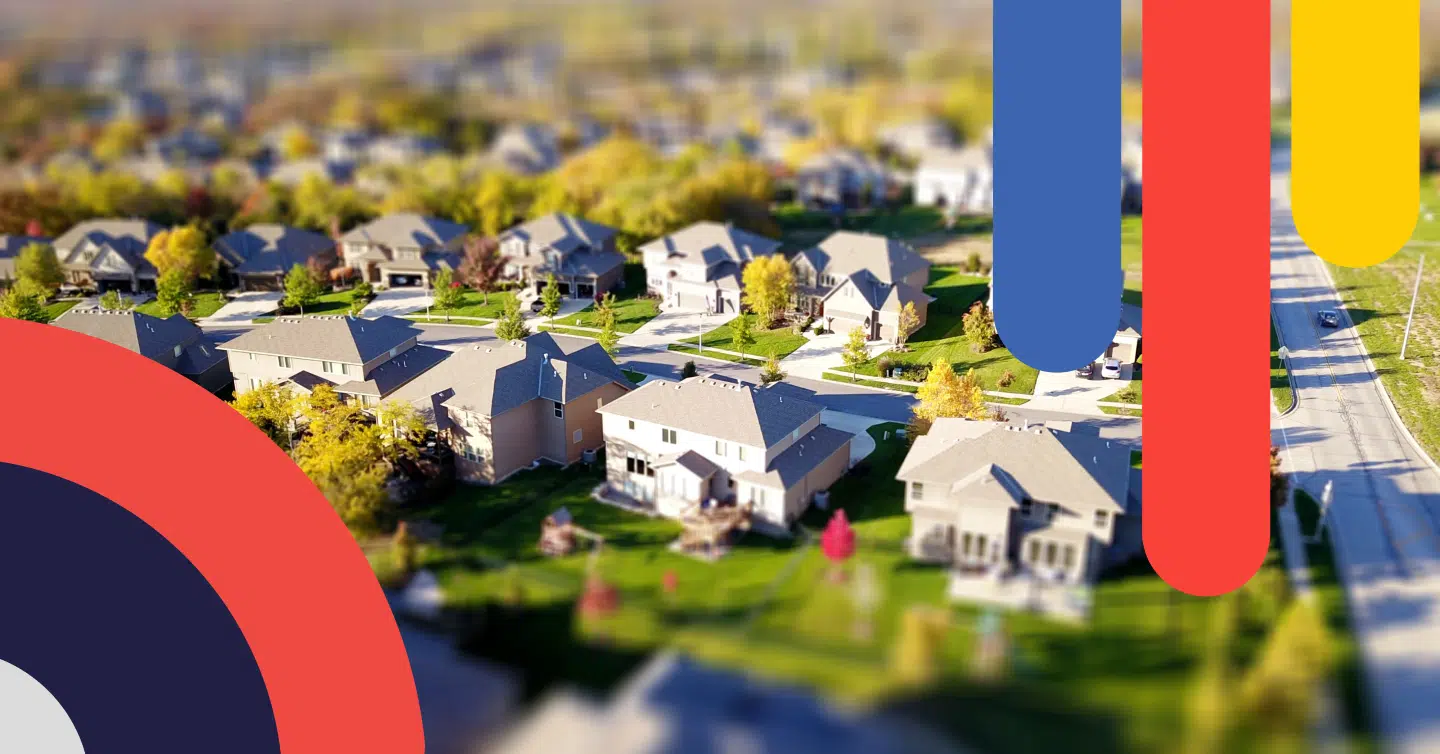How Much Will Home Prices Increase in 2025

Table of contents
As the housing market shifts and evolves, homeowners and prospective buyers have been waiting to see what the future holds regarding home prices. Potential buyers who have been waiting on the sidelines are finally emerging as interest rates come down. But just how much will home prices increase in the years ahead?
Although it’s impossible to predict what might transpire year over year, we will aim to provide valuable insight into what experts predict for Canada’s real estate market in 2025.
Key Takeaways
- CREA predicts home sales and prices will rebound in 2025.
- New construction in 2024 increased but is still insufficient to meet demand or improve affordability.
- The current foreign buyers’ ban, extended until 2027, could alleviate some demand in major urban centres.
Housing Market Price Predictions For 2025 and 2026
The housing market continues to be a hot topic in Canada. As most regional markets switch from balanced to seller’s markets due to a lack of listings to meet growing demand, here are some predictions on what sidelined buyers might face over the next few years.
The Canadian Real Estate Association (CREA) Price Predictions For 2025 and 2026
The Canadian Real Estate Association (CREA) updated its quarterly home sales activity and price forecast. It anticipates that sales will increase 8.6% in 2025 compared to 2024 and that 532,704 residential properties will be sold in 2025.
Meanwhile, home prices for 2025 are forecasted to increase by 4.7% annually. The average national home price is expected to climb to $722,221. Buyers waiting on the sidelines are expected to return to the housing market after waiting for more affordable mortgage rates.
As the housing market continues to rebound, home sales are predicted to rise by 4.5% in 2026 to 556,662. Prices are also forecasted to climb by another 3.3% from 2025 to $746,379.
However, the figures in this forecast could change dramatically as Canada’s housing supply remains lower than demand. Additionally, economic uncertainty and the possibility of a recession in 2025 could lead to longer-lasting shifts in the housing market.
RE/MAX 2025 Canadian Housing Market Outlook
According to RE/MAX’s housing market outlook, most regions will remain a seller’s market in 2025. They predict that the average national home price will climb by 5%, and sales are anticipated to increase by 25%.
First-time buyers are the demographic most likely to drive housing market activity in 2025. However, an increase in sales with limited new listings is expected to lead to rising home prices, which Canadians should expect to see across all housing markets over the next year.
TD Canadian Housing Outlook
TD anticipates positive sales growth in 2025 due to falling borrowing costs and economic growth. Additionally, changes to mortgage rules for insured borrowing that took effect in December will boost demand and raise prices.
TD predicts that home sales will increase 15.8% nationally in 2025, with Ontario and British Columbia contributing the most to this growth. Home prices are expected to increase by 8% in 2025, led by price growth in Saskatchewan and New Brunswick.
For 2026, Economist Rishi Sondhi at TD anticipates that home sales will increase a further 2.9%, with sales in Newfoundland and Labrador and Saskatchewan contributing most to the increase. Meanwhile, prices will climb by 3.1%, with increases in Alberta, Manitoba, and New Brunswick contributing the most to price growth.
How To Predict Housing Prices & Market Insights To Watch
Predicting housing prices can prove challenging, but understanding the current market and past trends and examining economic changes can provide valuable insight and guidance. These changes can include unemployment rates, inflation, and even population growth. Another factor to consider is location and locational risk due to climate change, as prices vary significantly throughout Canada.
Find a better rate, and we’ll match it, beat it, or give you $500*.
*Conditions Apply
With nesto, it’s stress-free
Factors That Impact Home Prices In Canada
There are a few significant economic drivers when understanding what impacts home prices. Buyers and sellers can better navigate the complex Canadian real estate market by understanding these factors.
1. Inflation & Bank of Canada Policy Rates
When unemployment rates are low, and the economy is growing, people are more likely to buy homes, driving up demand and prices. Government policies like tax incentives and policies can also impact home prices. For example, incentives like the Home Buyers’ Plan (HBP) can encourage first-time buyers to enter the housing market, driving demand. Meanwhile, anti-flipping taxes and the ban on foreign buyers, extended until January 1st, 2027, are expected to reduce demand.
Interest rates are another factor heavily influencing the housing market. When interest rates are lower, borrowing is more affordable, allowing more people to qualify and enter the housing market. With higher interest rates, the opposite occurs, reducing demand as many borrowers are unable to qualify, leading to fewer sales and lower prices.
2. Inventory
Supply and demand dynamics within the real estate market significantly affect home prices. If there are a limited number of homes for sale, prices will likely be higher. Sellers may hesitate to list their homes because they are concerned about the current housing market or the economy. These homeowners may not list their homes because they cannot find a more suitable home to upsize or downsize into. They may be unable to get the asking price they want for their current home to fund a new purchase, so they prefer to wait for better market conditions.
3. New Construction
New construction is also influencing home prices due to a variety of factors. Fewer new construction projects are being completed due to the rising cost of construction materials and labour shortages. This lack of new housing being completed is fuelling low inventory levels, meaning there are fewer newly built homes available to buyers. With fewer houses to choose from, buyers are more likely to find themselves in bidding wars with other buyers driving up prices.
CMHC’s Fall 2024 Housing Supply Report highlighted that the level of new construction was the second strongest since 1990. However, when these figures were adjusted for population size, they were still insufficient to meet the growing demographic demand. So far, the increase in new construction levels has not reduced the gap between supply and demand or improved affordability.
4. Neighbourhood Home Prices & Market Fluctuations
Location is another major factor, with homes in desirable neighbourhoods or close to desirable amenities (like schools, shopping centres, and public transportation) fetching higher prices. This can be attributed to the bid rent theory, which states that prices tend to be higher in city centres and much lower as you go further from the downtown core.
Recently, this pattern shifted when, during the pandemic, many people could work remotely and desired more living space as they were spending more time at home. These homebuyers traded convenience for larger homes, bigger yards and suburban or small-town living. This price shift in real estate in major urban centres saw a dramatic drop in prices while prices in the suburbs and smaller towns surrounding these urban areas were driven higher, narrowing the price gap.
Frequently Asked Questions
Will home prices go up in 2025?
Yes, home prices are expected to increase in 2025. Most experts forecast that 2025 will be a rebound year for home sales and prices. Changes to insured mortgage rules and pent-up demand will lead to increased competition as buyers compete for limited supply.
What factors are affecting home prices in Canada?
Several factors influence home prices in Canada. These include inflation, unemployment, Bank of Canada policy rates, inventory levels and new construction.
Why is new construction influencing home prices?
New construction influences home prices as the rising cost of construction materials and labour shortages means fewer homes are being completed. This is leading to insufficient supply to meet growing demand, which can lead to an increase in home prices.
Final Thoughts
The housing market can be complex and tricky to navigate, experiencing many ups and downs in recent years. Homeowners and prospective homebuyers should closely monitor housing trends and factors influencing demand and prices as they assess their options. Overall, now is undoubtedly an interesting time for real estate, with only time being able to tell us what awaits.
If you’re ready to become a homeowner and want to avoid this spring seasonal rush, contact nesto mortgage experts today to move forward with your homeownership goals.
Ready to get started?
In just a few clicks, you can see our current rates. Then apply for your mortgage online in minutes!















